I hope you are all enjoying this summer!
I’ve just been feeling so lucky to live in this green lush environment. We’ve been getting our rains, and the resurrection fern on the trees is a thick carpet. And of course the plants in my yard are happy. I’ve got an old rose climber outside a bedroom window that is currently featuring a mass of white blooms—the perfume is marvelous.
I was reading an article about commercial real estate. Because a lot of people are not returning to the office the office towers in downtowns have high vacancy rates. The article was saying that the cities most affected were the ones with just a concentration of office buildings without diversity!
And I’m thinking to myself, this is just what we talk about in nature: Monocultures are more vulnerable; diversity makes the environment more stable. Are we seeing patterns here?
Speaking of Monocultures: What About Those Lawns?
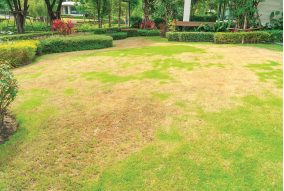 “Lawn, ecologically, is dead space,” says Doug Tallamy, an entomologist at the University of Delaware and author of the book Nature’s Best Hope: A New Approach to Conservation That Starts in Your Yard. You see it didn’t used to matter if we had big lawns and lots of exotic plants—because there was enough nature left!
“Lawn, ecologically, is dead space,” says Doug Tallamy, an entomologist at the University of Delaware and author of the book Nature’s Best Hope: A New Approach to Conservation That Starts in Your Yard. You see it didn’t used to matter if we had big lawns and lots of exotic plants—because there was enough nature left!
But now that human beings have taken over two thirds of the planet, planting for nature in our yards as he says “becomes nature’s best hope.” There isn’t enough wilderness left for all the other earth’s inhabitants which of course—along with pesticides—is why bird species are in decline as are more than 40 percent of insects. In fact the United Nations estimates that, globally, 1 million plant and animal species are under threat of extinction.
By adding native plants to your landscape and reducing your lawn, you are refocusing your garden on the ecological purpose of plants, which is to produce food. Plant energy gets passed up the food chain often via insects. But many insects eat only one native plant species or group of related plants. And also only lay their eggs on the native plants they evolved with. So if we are planting non native plants, that plant food doesn’t necessarily get transferred from creature to creature. Also, remember we depend on insects to pollinate our crops.
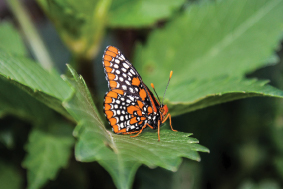 Plants through photosynthesis transform the suns rays into energy, the insects eat the plants, the birds eat the insects, and on up the food chain. Without this transfer of energy, i.e., food, the ecosystem can stall. Of course, this is not good for people.
Plants through photosynthesis transform the suns rays into energy, the insects eat the plants, the birds eat the insects, and on up the food chain. Without this transfer of energy, i.e., food, the ecosystem can stall. Of course, this is not good for people.
Also, maintaining those lawns consumes nearly 3 trillion gallons of water and 59 million pounds of pesticides, which seep into our land and waterways—not to mention fertilizer, which also gets into our waterways and creates those dead spots and algae blooms. Why not start with your backyard? You are going to enjoy the result since these native plants bloom all the time and need no care as well and be good to the planet! It’s a two-fer.
It’s thinking about creating an ecological oasis in your yard. It means bringing nature into your yard. If you think about it as an ecosystem and try to mimic what we see in natural ecosystems, that really works best.
Plant For Nature, Birds And Butterflies
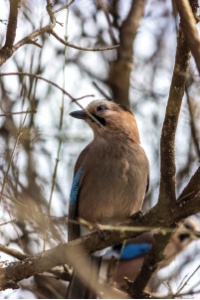 Butterflies will feed and lay their eggs on those native plants, and they and other insects provide food for the birds.
Butterflies will feed and lay their eggs on those native plants, and they and other insects provide food for the birds.
Birds require shelter from the elements, protection from predators, water, natural food and nesting sites. Look around at your yard. Driving around Coral Gables mostly what I see is acres of lawns with some shrubs and trees dotted around.
Does that look anything like nature? Of course not. Nature and birds need layers of plants and trees, tall ones, middle sized ones, small ones and natural ground cover. These layers provide shelter, nesting sites and with the right plants food. A brush pile provides a hiding place for lizards, toads and many insects of immense interest to ground feeding birds. Instead of bagging up those leaves, which are natural fertilizer, rake them into your hedges and flower beds leave some around as home for worms, millipedes and other tasty morsels. Birds also love aphids, caterpillars, grasshoppers and other insects that love to dine on your ornamentals. Think about creating this oasis with at least part of your yard. The greater diversity of plants you have, the more robust the habitat is for a variety of pollinators and wildlife.
Wow! I Can’t Believe What’s Happening Out West
It’s scary and very sad what I am reading about the heat and drought in the West. “More than 1 billion marine animals along Canada’s Pacific Coast are likely to have died from last week’s record heatwave, dead mussels, clams, sea stars and other marine animals coated the coastline” (The New York Times, July 9). “Mega- heatwave in the West breaking records and intensifying drought, fires” (Washington Post, June 17). “Northern California gets most of its drinking water from the Sierra Nevada mountains, in May 2021 the snowpack was only 6% of normal.” (The Guardian, July 9).
About the Author

Linda Lawrence Waldron currently writes the Green Gables column in Gables Living Magazine. Linda was Chairman of the Garden Club's Coral Gables Library Butterfly Garden Committee.
Sign up here for email notifications about new Green Gables articles!
More from our blogs
See all postsRecent Posts
- April 2023 April 1, 2024
- Good News on Environmental Plastics February 1, 2024
- Material World / Plant World January 1, 2024
Reply to Frank Mansson. cancel
This site uses Akismet to reduce spam. Learn how your comment data is processed.





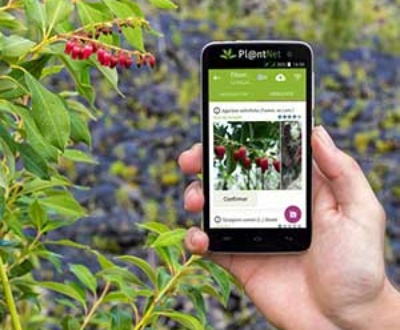
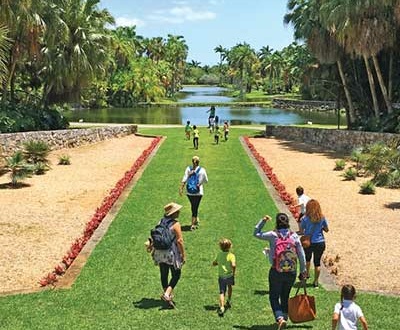
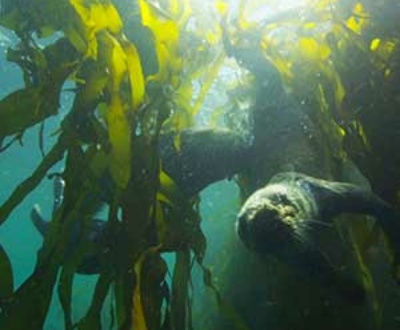
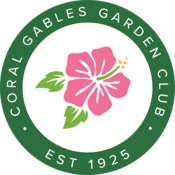
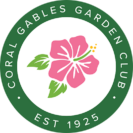
Dear Linda, I really enjoy and appreciate your articles about the importance and benefits about biodiversity. This is article from University of Toronto about Darwin is a proof that he was right a long time ago. https://www.utoronto.ca/news/darwin-was-right-productivity-increases-species-diversity. It is also true in general for any organization or country for that matter. Diversity will make us all stronger! Keep up with your good work and writing. Kind regards, Frank